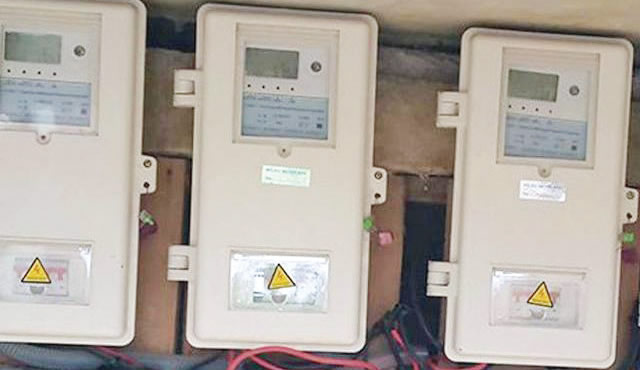378
Daniel Adaji
Nigeria’s power distribution companies installed only 547,436 electricity meters in 2024, falling short of the federal government’s target of 800,000, according to the latest data from the Nigerian Electricity Regulatory Commission (NERC).
The figure represents a 68 per cent achievement rate and marks a four-year low in annual meter deployment. It also reflects a 34 per cent decline from the 828,284 meters installed in 2021.
The shortfall has renewed public criticism of the government’s metering efforts, particularly under the National Mass Metering Programme (NMMP), which aims to eliminate estimated billing and increase transparency in electricity consumption.
Despite earlier assurances from the Minister of Power, Adebayo Adelabu, that over 572,050 meters had been deployed under the NMMP, the actual numbers have fallen short of expectations.
His special adviser, Bolaji Tunji, insisted that “installations have been progressing steadily.”
With more than seven million households still relying on estimated billing, the limited progress in metering has left many consumers vulnerable to arbitrary charges from Distribution Companies (DisCos).
NERC data as of December 31, 2024, shows that only 6.29 million out of 13.5 million registered electricity customers had been metered—translating to a metering rate of 46.57 percent.
According to Tunji, the federal government expects to begin receiving a batch of 3.2 million meters this year.
The first shipment of 75,000 meters under the International Competitive Bid 1 (ICB1) is scheduled to arrive this month, followed by another 200,000 units in May. He also noted that over 5.5 million customers—about 55 percent of the country’s 10.1 million active electricity users—had been metered as of December 2024.
To address the metering deficit, the government is rolling out two major initiatives: the Distribution Sector Recovery Program (DISREP) and the N700bn Presidential Metering Initiative (PMI).
DISREP aims to deliver 3.2 million meters by 2026 using three procurement models. Meanwhile, the PMI, funded by the Federation Account Allocation Committee (FAAC), plans to deploy two million meters annually for five years. Implementation will be managed by a Special Purpose Vehicle (SPV), with the first round of tenders expected in Q3 2025.
The metering gap continues to fuel complaints of overbilling. On Monday, Lagos State Deputy Governor Obafemi Hamzat revealed he was charged N29m in April by Eko Disco—nearly a 1,000 percent increase from the N2.7m billed in March.
His disclosure triggered public outrage, prompting the Electricity Consumers Protection and Advocacy Centre to demand an investigation into the billing practices of Eko Disco.



